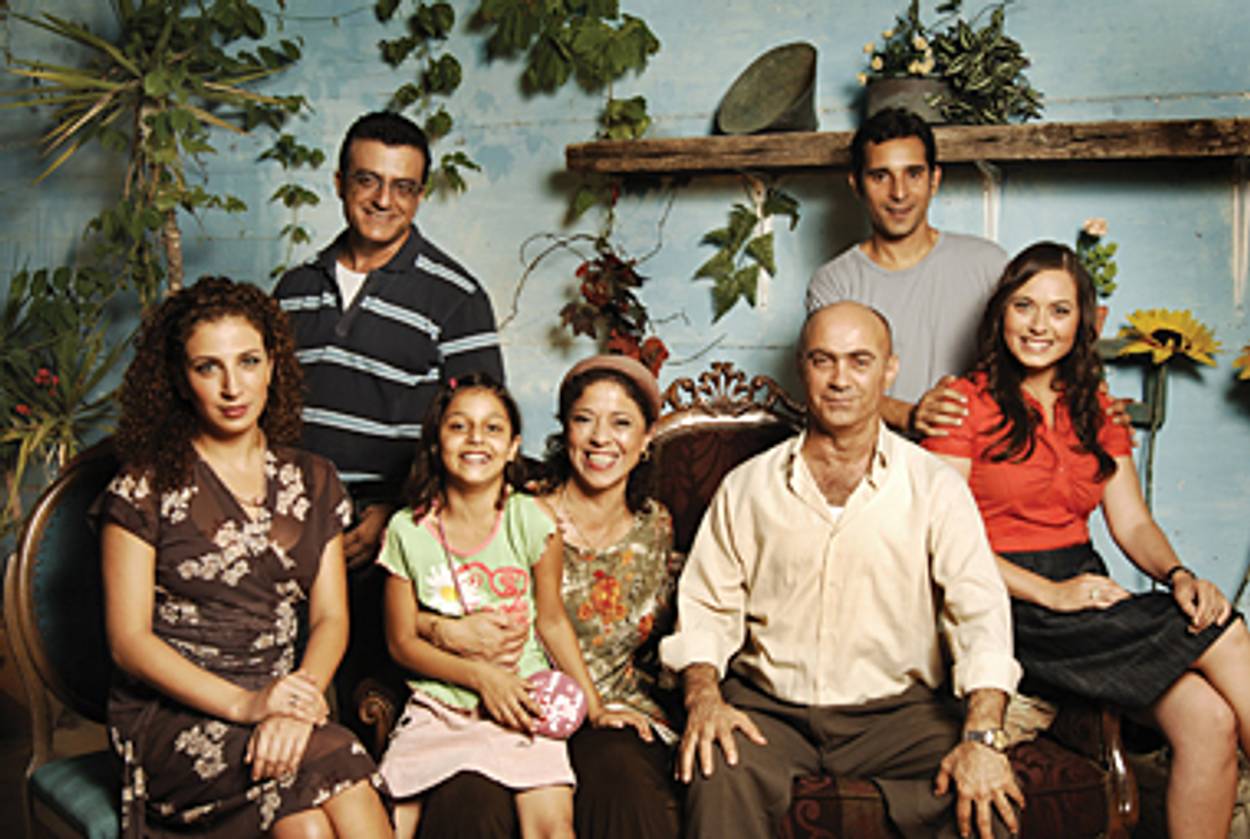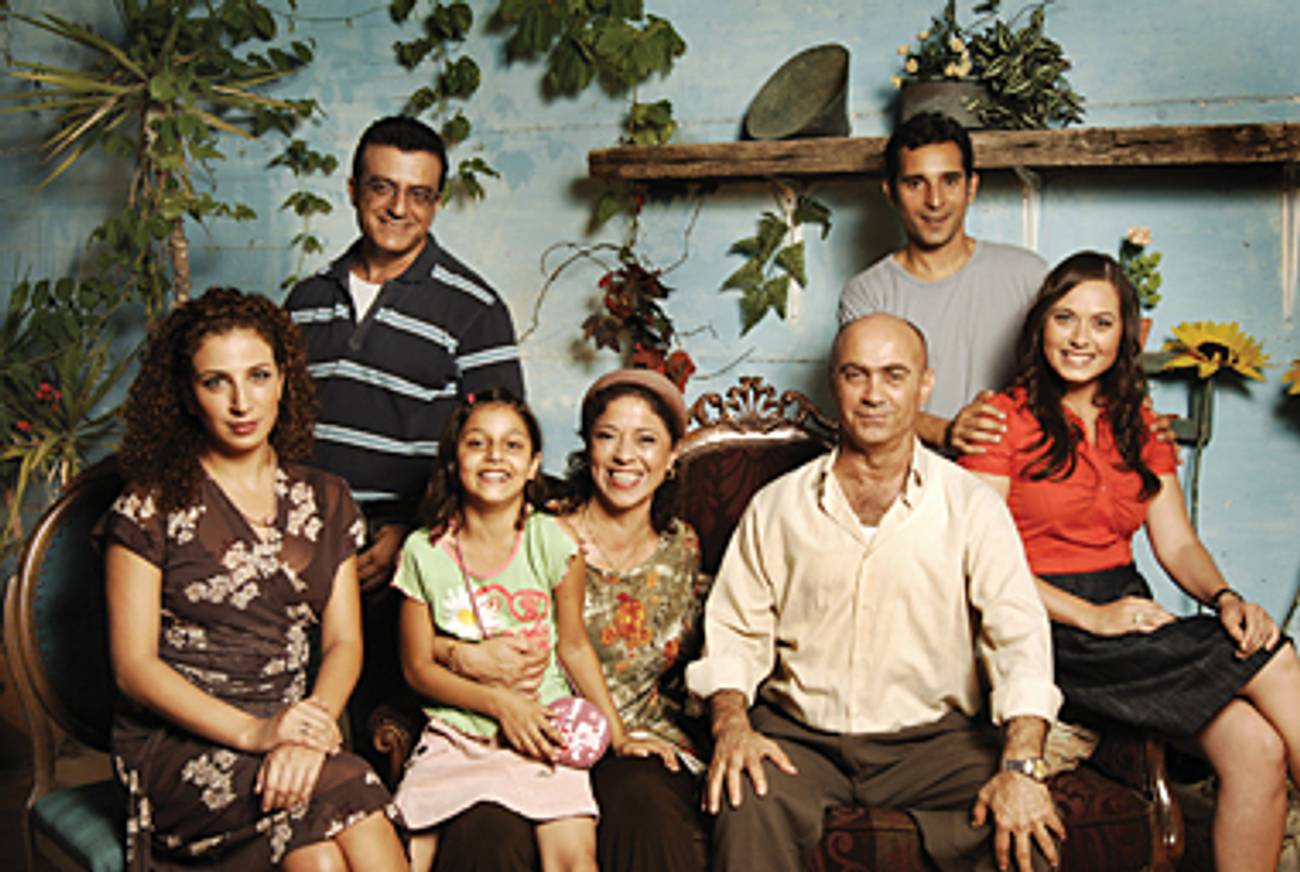Screening the Others
A film festival looks at Israel’s Arab citizens




Even viewers who are ignorant of Haim Yavin’s prominent place in the world of Israeli culture are likely to recognize, within a moment or two of watching his new television series—which will be screened at three Manhattan locations in the coming week—that the man they see on the screen is a figure of authority. Nicknamed Mister Television, he spent decades as the sole anchor of the country’s lone televised news broadcast, shown on the state-run channel that was, for a long time, the only show in town.
A brief bit of archival footage, dating to the early 1980s, best demonstrates Yavin’s stature. Looking regal and erect, his rich brown hair parted on the side, his voice as deep as his cheekbones are high, he delivers a short message about a new national enterprise designed to encourage Israelis to settle in the country’s north. The goal, he informs his viewers, is the “Judaization of the Galilee,” a swath of land largely inhabited by Israeli Arabs. When he speaks, he sounds like the very voice of the government.
The archival footage soon ends, however, giving way to latter-day Yavin, circa 2008. He is a changed man. No longer sitting behind the anchor’s desk, he has traded in his suit for a short-sleeved shirt, the television studio for a small video camera and bare-bones production crew, his measured tones for empathic, often enraged speeches. And what he had to say shocked many Israelis who had come to rely on him as the impartial presenter of the news. Israel, Yavin claims in his new series, is committing grave injustices against its Arab citizens, injustices that, if not addressed, might lead to violent confrontations.
Titled ID Blues—a pun on the denim-colored identity card issued to all Israeli citizens—the television series documents Yavin as he travels across Israel and interviews Jews and Arabs alike in an attempt to understand how a relationship that began as tenuous but sustainable soon spiraled into mutual suspicion and resentment.
The show, along with its celebrated creator, is among numerous films and television series showcased in the Other Israel Film Festival, beginning this week at Manhattan’s Jewish Community Center. Now in its third year, the festival is dedicated to shining a light on the Jewish State’s non-Jewish citizens; despite obvious political sensitivities and a relative dearth of materials—Israeli filmmakers still largely prefer to train their cameras on Tel Aviv’s young, lithe bodies rather than document society’s have-nots—the festival does an admirable job of addressing its subject matter with intelligence and nuance.
Inviting Yavin is a case in point. His is the sort of insider’s perspective rarely heard outside of Israel. And his show is difficult, demanding stuff. The aged Mister Television is often abrasive, and the stories he tells are frequently heartbreaking; when the parents of a soldier killed in a suicide bombing, for example, try to rent their apartment to an Israeli Arab and are rebuked by their neighbors on the grounds that the small northern community in which they live is only open to Jews, Yavin, abandoning all of the anchor’s reserve, explodes.
As, for that matter, does Amjad, the protagonist of another television show featured in the festival, the 2007 sitcom Arab Labor. Amjad is a journalist as well, albeit a fictional one, but he enjoys none of Yavin’s renown. And it’s no wonder: as an Israeli Arab working for a large Jewish daily, he is constantly asked to serve as a spokesman for what various media types throughout the show refer to as “the minority,” and finds his attempts to fit in with Israel’s intellectual elite repeatedly rebuffed.
Written by Sayed Kashua, a novelist and columnist for Haaretz, the show explores the same terrain as Yavin’s, but with a very different vehicle, using jagged humor instead of reportorial zeal. Everything about Arab Labor is calculated to simultaneously delight and offend, from the show’s title—a Hebrew euphemism for second-rate, shoddy work—to its crisp, irreverent dialogue.
In one scene, for example, Amjad wonders why he’s constantly singled out by a police officer in a security checkpoint outside his village. Seeking insight into the mind of Israeli security personnel, he turns to Meir, his short-fused Jewish colleague, and asks him if he had ever served in the army.
“I told you a thousand times, I didn’t kill any Arabs, okay?” a defensive Meir replies. He waits a moment and then, visibly irritated with his colleague, quips, “Now I’m sorry I didn’t.”
Punch lines such as this one didn’t do much to help keep the show on the air; despite nearly universal critical praise, it lasted a mere 10 episodes before being cancelled. But when screened together with Yavin’s series and the festival’s other excellent selections—including the stylish and wonderfully acted melodrama Jaffa—it becomes part of a cinematic mosaic, an intricate body of work that seeks not only to edify but also to entertain, as subtle and as loaded as the conditions it explores.
Liel Leibovitz is a senior writer for Tablet Magazine and a host of the Unorthodox podcast.
Liel Leibovitz is editor-at-large for Tablet Magazine and a host of its weekly culture podcast Unorthodox and daily Talmud podcast Take One. He is the editor of Zionism: The Tablet Guide.